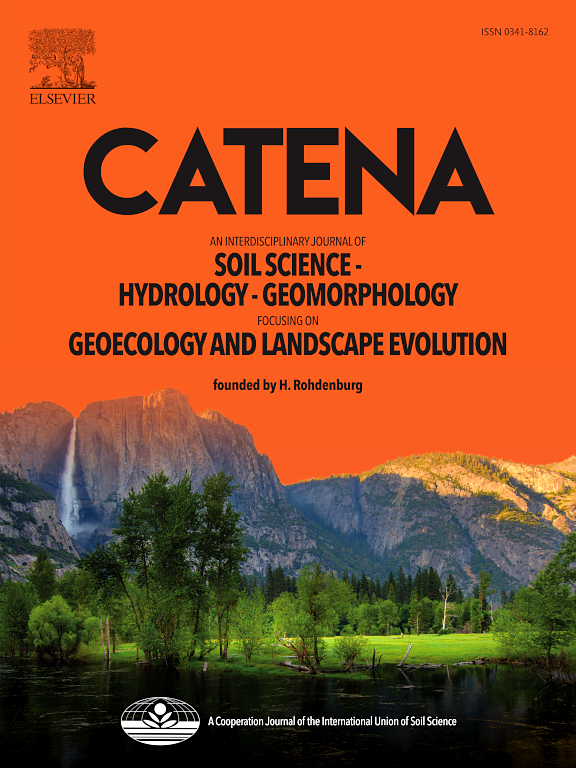Effect of waste-derived synthetic zeolite on soil hydraulic properties and soil water storage parameters in sandy-loam soils
IF 5.7
1区 农林科学
Q1 GEOSCIENCES, MULTIDISCIPLINARY
引用次数: 0
Abstract
Zeolites are used in agriculture to amend soil chemical and physical properties. They have complex internal frameworks that enable them to alter soil texture and structure, with a direct influence on the soil’s hydrological behavior, enabling better control of groundwater contamination and more efficient irrigation management practices. This ability provides opportunities to optimize water and solute movement in coarse-textured soils while enhancing nutrient availability due to their high cation exchange capacity and water retention. In this study, a series of laboratory experiments were conducted on sandy-loam soils with different pedological characteristics, mixed with a synthetic zeolite derived from fly ash, a byproduct of coal combustion. Repacked soil samples were amended with three different zeolite concentrations (2 %, 5 %, and 10 % by weight) and subsequently analyzed for their hydraulic properties and soil water storage parameters (SWSPs) of agronomic interest. Consistent with recent research findings, our results indicate that zeolite influences soil pore-size distribution. Specifically, total soil porosity increased, with mesoporosity and microporosity rising by approximately 11% and 13%, respectively. The effects induced by zeolite showed a direct correlation with the selected soil hydraulic properties and SWSPs. Our study shows that in coarse-textured soils, incorporating an appropriate dose of zeolite enhances water retention within the soil profile while preventing excessive saturation in the root zone.

垃圾合成沸石对砂壤土土壤水力特性和土壤蓄水参数的影响
沸石在农业中用于改善土壤的化学和物理性质。它们具有复杂的内部框架,使它们能够改变土壤的质地和结构,对土壤的水文行为产生直接影响,从而能够更好地控制地下水污染和更有效的灌溉管理做法。这种能力为优化粗质土壤中的水和溶质运动提供了机会,同时由于其高阳离子交换能力和保水能力而提高了养分有效性。在这项研究中,我们在不同土壤学特征的砂质壤土上进行了一系列的实验室实验,混合了一种从煤燃烧副产品粉煤灰中提取的合成沸石。重新包装的土壤样品用三种不同的沸石浓度(按重量计为2%、5%和10%)进行修饰,随后分析其水力特性和农艺兴趣的土壤水分储存参数(SWSPs)。我们的研究结果与最近的研究结果一致,表明沸石影响土壤孔隙大小分布。土壤总孔隙度增加,中孔隙度和微孔隙度分别增加约11%和13%。沸石诱导的效应与所选土壤水力特性和SWSPs直接相关。我们的研究表明,在粗质土壤中,加入适当剂量的沸石可以增强土壤剖面内的保水能力,同时防止根区过度饱和。
本文章由计算机程序翻译,如有差异,请以英文原文为准。
求助全文
约1分钟内获得全文
求助全文
来源期刊

Catena
环境科学-地球科学综合
CiteScore
10.50
自引率
9.70%
发文量
816
审稿时长
54 days
期刊介绍:
Catena publishes papers describing original field and laboratory investigations and reviews on geoecology and landscape evolution with emphasis on interdisciplinary aspects of soil science, hydrology and geomorphology. It aims to disseminate new knowledge and foster better understanding of the physical environment, of evolutionary sequences that have resulted in past and current landscapes, and of the natural processes that are likely to determine the fate of our terrestrial environment.
Papers within any one of the above topics are welcome provided they are of sufficiently wide interest and relevance.
 求助内容:
求助内容: 应助结果提醒方式:
应助结果提醒方式:


